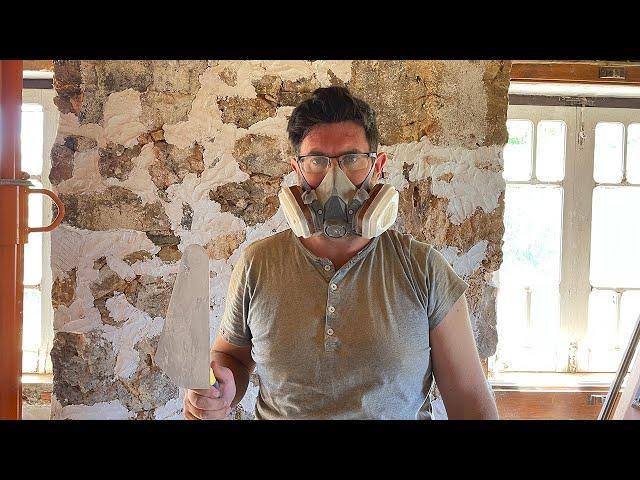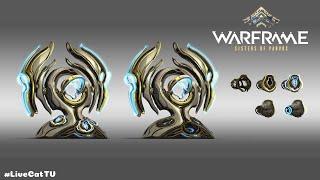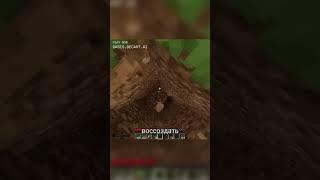
Fixing Our Lime MISTAKE - Restoring a Stone Building
Комментарии:

Makes me appreciate how horrible concrete is.
Ответить
Have you considered hiring day labour to help move the project along faster? Is that an option where you are?
Ответить
Great JOB, GREAT, Project, Great TEAM.
Ответить
I love that you also watch Kris Harbour!! :D
Ответить
Hi Guy! Hi Kylie! Been following your new channel since the beginning. I love all your videos and am in awe of all your hard work! You are pouring your heart and soul into renovating your house and you work so hard on it that I hope you never sell it. No one will ever love that house as much as it will deserve to be loved after you've finished renovating it, only you guys will know all the pain and sweat that have gone into every nook and cranny of that house! Thank you so much for sharing your experiences with all of us that like watching other people work while sitting on the sofa doing nothing! 😄😄😄
Ответить
our elderly neighbour who was in the building trade his whole life (apart from when war interrupted) for over 70 years once told us how the builders started a new area of land here in our part of the south eastern New Forest.There is a clay plain only 1-2 feet below the topsoil for miles around here so when a block was marked out for building pre WW2, the first man called in was the water diviner. Once he had determined the best place, a well was dug.
After that, next to the well a deep 12-18 inch trench was dug, which was at least 4 yards long. This was where the lime was to be slaked for the whole block. Sand was brought in & piled alongside too so the mix would depend on which of the jobs were being done on the day. The lime pit was refreshed as needed and as it was next to the well, water was always on hand. We live in a house that was built using lime mortar that is 100 years old this year & if we have a heavy goods train along the nearby line go past we can feel the house vibrate. However it causes no cracking/disturbance problems to the fabric of the building.
We are happy to see traditional proven building methods being used again.

thanks for the info, I've found conflicting advice about the lowest temperatures at which you can work with lime, as we are currently experiencing temps dropping below freezing I think we need to wait, is that what you found out too?
Ответить
You could almost hear the building take a deep breath of relief with all that concrete gone
Ответить
Good informative episode. Thanks!
My thought when Guy was stirring the lime mix, 'Witches brew!' 😄

Ihr müsst Vorsichtig sein der Kalk ist nicht gelöscht ihr Könnt Blind werden und die Inneren Organe können geschädigt werden so ein Leichtsinn wenn ihr es normal verputzt hättet sähe es auch schön aus
Ответить
To avoid shrinkage whilst rendering, on dry walls. Best to spray them down with water first, that'll absorb into the walls, therefore it will be able to bond to, and not dry as quickly 😉
Ответить
I salute you guys, you are doing an amazing work, plus you probably saving to lots of people trouble by sharing your experience. 👍
Ответить
At first I read this as 'Lame Mistake' and thought, aw, guys don't be so hard on yourselves. Lol
Ответить
I have so much admiration for you two
Ответить
Great use for one of your water tanks/plunge pool.
Ответить
I have a question. As you’re adamantly against cement for your stone building, do you intend to install a ring beam around the perimeter of the building and if so, how do you intend to do this without cement? Asking for a friend…
Ответить
What sort of food do you eat while you have such long days of doing this type of work ?
Ответить
I was always told that when putting any sort of cement mix onto a wall you spray the wall with water first so that it does not suck the moisture out of the mix too quickly, is this not possible with lime mortar. I wish I was 20 years younger or had less pain, I would love to do what you are doing
Ответить
Watch Kris Harbour and although a little mad he is a genius and a really hard worker.
Ответить
👍
Ответить
First of all, you're walking about in tshirts like it's no biggie and birds are chirping like it's summer and here in NL it's about 9C.
Love the timelapse concernerning cleaning the walls, great mix and perfectly edited.
Admire the hard work and I agree, the lime mix is a safer choice to go for since it has proven it's value.
All the best going onwards from here.

We agree on the NHL 3.5 being less breathable than just lime, from our own usage it still does breath and allow moisture to pass. We know this because as the moisture evaporates it leaves behind mineral salts that are contained in the land, fortunately this has not affected the lime. Our usage is different to yours because we are renovating a cave, so we decided on NHL because it is less likely to give due to the ground the cave is dug from, therefore giving the structure more strength.
Cal Viva here locally in Spain is sold in rock form, we couldn't find it as a powder. We can also buy Hydrated Lime and that is in powder form and more or less ready to go as it has been slaked then dried and bagged.
A tip that we have recently been given is to save the water from slaking and store it to use as a `size` before limewashing as it helps the process on raw lime walls.

Ha ha, a bunch of water, a bunch of water? are you sure your Brits.
Ответить
I really enjoy your videos. You are very articulate, Guy. But there are too many bunches......"a bunch of water"? 😄
Ответить
It’s actually Try. Learn.Grow. - so grow!
Ответить
We got an old oil barrel from our builders 25 euros, cleaned it out with cat litter which absorbed the remnents of the oil. We had room to slake 2 of the bags of Cal Vida. Made ours over a month ago and not got round to using any yet.
Ответить
Well done. Very nice. Respect.
Ответить
I felt like crying.
Ответить
When pointing, filling the bigger gaps with smaller stones would help with solidity, I believe. It's quite time consuming though I would guess.
Ответить
It's a beautiful thing! ♥
Ответить
I see a lot of old stone houses with bare stone walls - what are your reasons for rendering it?
Ответить
always peace and quiet, until dogs ruin it.
Ответить
Whatever you are using on your camera, it makes the upright things in your vedio look curved, however the content is very interesting.
Ответить
From what I've seen, to avoid that shrinkage and drying too fast, you should spray the area with water before applying. I hope it might help 😊
Ответить
As usual your videos are packed with info (thanks Kylie for all your research!) and followed up with “how to” … thanks Guy… thoroughly enjoying your sharing of this mammoth project ! Durban 🇿🇦
Ответить
Hey guys, where did you buy your acrow prop bench/station? In the market for one ✌️
Ответить
Very interesting.
Ответить
So hl5 is bad for those walls?
Ответить
Yeah, it is interesting that lime is so popular in Portugal. I thought our ancestors used it just because they could not buy cement for any reason.
Ответить
We are in october soon, some rain has already started in Portugal. Can you share how the walls stood after rain?. Did the lime allow to breath, less or no mold at all?. Thank you
Ответить
As soon as you mentioned slaking your own lime I thought of Chris Harbour - what a great content maker.
Ответить
Why didn’t you spray the wall with water first?
Ответить
Hey thank you for sharing your experience. I'm also experimenting in stone walls, in my case I'm building from the fundament, using NHL 5 for the mortar.
I thought the NHL was a strength unit for hydrated lime and not a type of lime... are you aware of that?
So, in my head, all lime after hydrated can be measured in NHL by its specific strength...
Anyway, I will try quick lime "cal viva" also.
Thank you

Just Lowely to listen to this honesty tunes 🩵🧡💚🪲👏
Ответить
Great video. Thanks. What about a 50/50 mix of quick lime and NHL 3.5? Would that work ? (For the lime hemp.) Or a mix of quick lime and NHL 2 which I’m told is stickier. Is building quick lime the same as the stuff used in gardening and agriculture?
Ответить
It's interesting that the windows are fitted almost flush with the exterior surface. I wonder why that is? Any setback improves weather protection of the window material. I lived in an old stone building in France and all the windows were set back.
Ответить
Simplest and interesting method is the hot lime mix,and this is what our ancestors would have used and 300 years later,its still there,depending what you mix it with,you get mortar,plaster and putty
Ответить


























